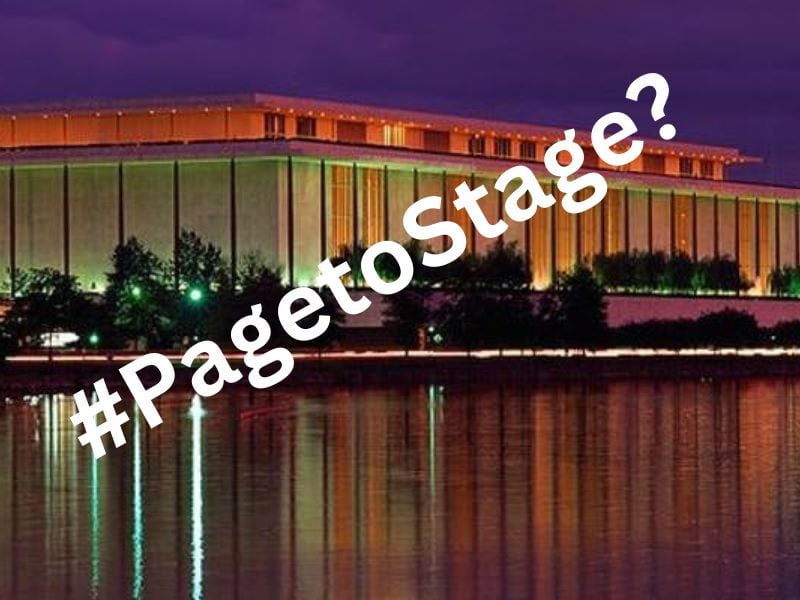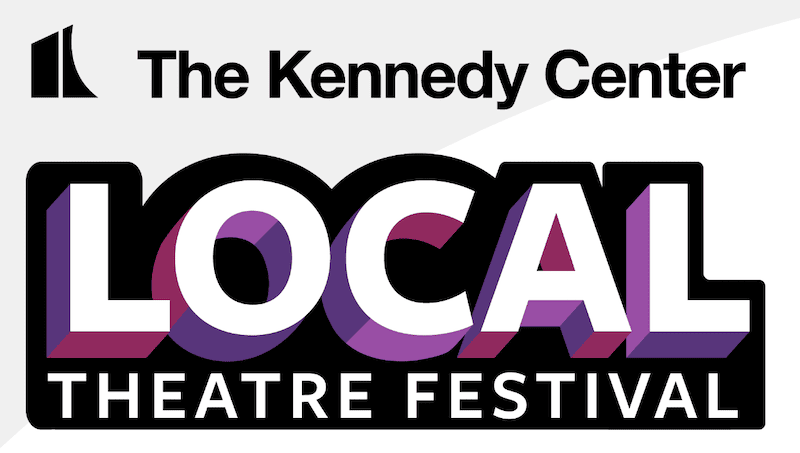It may be time to say goodbye to the Kennedy Center’s Page-to-Stage Festival, the popular annual event in which local DMV theatermakers presented public readings of new works at the Kennedy Center each Labor Day weekend from 2001 to 2019. While Kennedy Center representatives have not explicitly stated that the festival will not return, leaders of the Kennedy Center’s Social Impact Department, which took over management of the Festival in 2019, say that the Page-to-Stage Festival was paused in 2020 due to COVID and has since evolved into a new program called the Local Theatre Residency.

The Local Theatre Residency Program is a year-round program in which DMV-based artists and organizations are selected through a curated application process to spend a week-long residency at the Kennedy Center at a point in the year that works best with their schedule and creative process. The most recent cohort was in residence from August 21 to 25, 2023.
The Kennedy Center provides a stipend, a dedicated workspace, and a commitment to meeting artists wherever they are in the creative process, says Karina Galiano, the Kennedy Center’s Creative Alliance program manager. “Some arrive with just a few ideas and this gives them time to develop their ideas, others come with a full script so they bring their collaborators and we give them the space and time to get it on its feet.”
Whereas the Page-to-Stage Festival was all about getting new works in front of an audience, allowing artists to test out new material in a low-stress environment, the Local Theatre Residency lets each participant decide for themselves if they want to share their work-in-progress with an audience.
“Folks have enjoyed the flexibility of not being required to produce a finished product at the end of the week,” Galiano continued. “Folks who do want to share what they have been doing can do a showcase just for Kennedy Center staff or for the community more broadly. We leave it up to each artist to advertise as much or as little as they want for people to see their work at this stage.”
This year for the first time, however, in a nod to the original form of Page-to-Stage, there will be a public component to the program. On Saturday, September 2, the Reach will be open to the public for a free daylong Local Theatre Festival, including 11 staged readings of works-in-progress from current and previous Local Theatre Residents, and a series of workshops conducted by local theater professionals including stage combat, puppetry, lighting design, improv, and playwrighting. “The participants in the festival are people who have been in the Local Theatre Residency Program in the past few years so this is an opportunity to bring all those folks together and share what they have been up to,” said Baatin.

While Page-to-Stage typically lasted for three days and gave over 40 local theater companies the space to produce works-in-progress in front of a live audience, the Local Theatre Festival, in its first iteration at least, will last one day and feature 15 to 20 artists or companies.
No one at the Kennedy Center would definitively say that the Page-to-Stage Festival will never come back in its previous form, but all signs point to it being a closed chapter in DC’s theater history.
“We like the direction we are trending,” Baatin said. “Based on the outreach and conversations we conducted, the notion we got was that the support provided by the Local Theatre Residency would be equally if not more beneficial, so I think this is a natural evolution that meets the needs of artists more directly and a different kind of support that folks never got before.”
SEE ALSO: Bring back Page-to-Stage! (guest opinion by Patrick Flynn, August 31, 2023)




